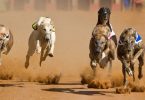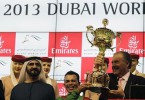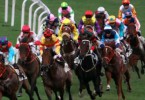This article first appeared in the Jul/Aug 2016 issue of WGM.
At just 23 years of age, jockey Ryan Curatolo already boasts a resume most only dream of. Born and raised in France before moving to the United States at 18 and more recently to Macau, he was a champion apprentice in New York in 2012, rode for the Queen of England in 2013 and won the Group 1 Macau Guineas in 2014 – not to mention claiming France’s “Young Hope” award for best up-and-coming expatriate in 2016. WGM sat down with Curatolo between Macau race meetings to find out more about his extraordinary rise.

Ben Blaschke: Ryan, you’re 23 years old and have already ridden all over the world – from France to the United States to Hong Kong and of course Macau. Where did this love of horse racing come from?
Ryan Curatolo: My Dad was a big fan of horse racing in France so we always watched the racing on TV with my family. I was at the race track one day when I was young and I fell in love with the horses, so I said to my Dad, “I want to become a jockey.” When I turned 10 he said, “Okay, we’ll take you to jockey school and see.”
When I first went there they told me to come back in four years’ time, so when I turned 14 my Dad took me to Paris. There are two jockey schools in France – one in Marseille and one in Paris – so I went to Paris and that’s where I did my four year apprenticeship.

BB: What do they teach you at jockey school when you’re so young?
RC: They have older horses there – older racehorses that have retired – so when we arrive there we learn about the physiology of the horse. We learn how to clean the horse, how to be in contact with them. Then when they put you on the horse you trot around the paddock and gallop a little bit – nothing too fast. They just try to get you in contact and get you used to the horse. It’s difficult too because horses can be very nervous so you need to be patient and learn how to control them. That’s the complicated part. You need about six months to get used to them and to get the muscles to control them.
BB: Did you feel comfortable straight away?
RC: I felt like I was okay but the horse was controlling me at first. I was very tiny, but after six months I started to get used to him and control him. That’s when I thought I had some talent. I’ve always been very passionate about the job, even then, because in France in the winter it’s very cold – around minus 10 degrees – so you need a lot of passion and dedication to make it.
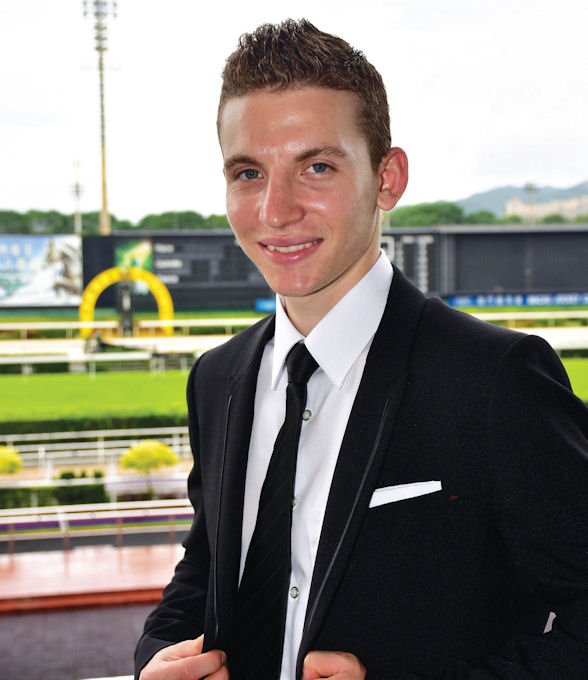
BB: You moved to the USA when you were 18. How did that come about?
RC: When I was in France I was at one of the best stables but my boss didn’t give me the chance. He didn’t have the right horse for me at the time. He said to me, “I know you’re good, be patient, one day I will find you a horse.” But I needed to race so one day when I was 18, my Dad was flying to Miami and I said to him, “I want to go with you and see what happens.” So that’s what I did. I went there and it turned out I was offered the opportunity to be an apprentice there. I rode about 800 races there in one year. It was pretty big.
BB: That sounds like a huge workload?
RC: Yeah that was a lot of races and a lot of travelling. I was based in New York. I started in Miami in January then signed a contract to go to New York in April. From New York I was riding all over the country trying to do as many races as I could. I think the more you work, the more opportunity you get. That’s the name of the game.
BB: That experience must have been beneficial for you in the long term though?
RC: It helped a lot in terms of learning riding tactics and riding styles because in North America they have a different riding style. The jockeys come from South America – places like Panama, Brazil and Puerto Rico. In France they are more relaxed, more patient but in America they are more aggressive so that makes a difference on the horse.
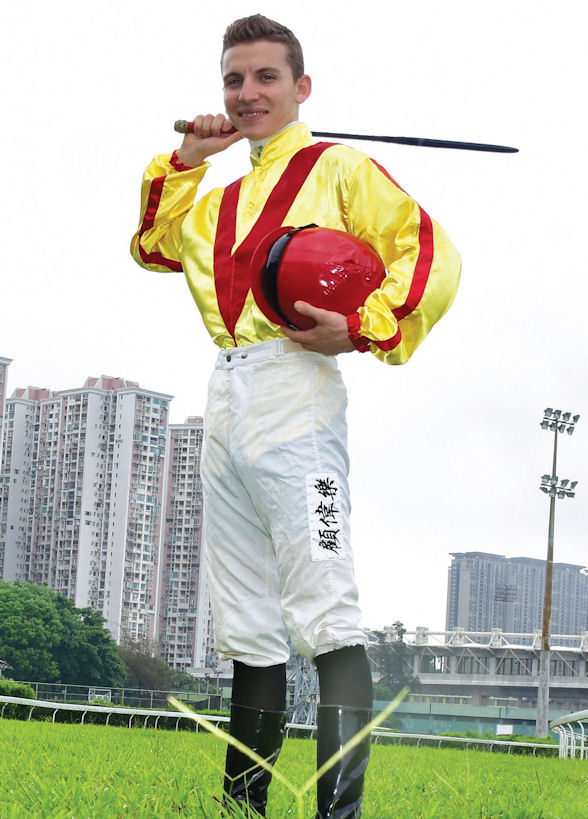
BB: So are different types of jockeys better suited to different types of races?
RC: Yeah some jockeys are more patient so they will be more tactical in the long distances. In short distances you don’t really need to be tactical, you just need to get a good break and go forward so smaller jockeys are usually better for smaller races because they are more compact on the horse. But it also depends on the horse. If I ride a Ferrari and you ride a Mazda, who’s going to win? It will always be the Ferrari because you’ve got the power. It’s the same in racing – the better horse will always win unless you ride a bad race. That’s where the jockey comes in. The best jockeys don’t make mistakes and that’s why they win so many races.
BB: What inspired you to come to Macau?
RC: I was in the USA from 2010 to 2013, then I was in New York in the winter and a friend of mine was riding in Macau. He was telling me how good Macau was – the life and the racing – and he told me I should give it a try. I said to him, “I don’t know … where’s Macau?” But I’ve always been curious to experience this part of the world so I asked my friend to give me the contact person so I could call them and ask about giving me an opportunity. I called and they gave me the opportunity to come for six months.
I didn’t actually plan to come for six months. I planned to come for two months but I’ve been here for over three years now. It’s been a good adventure. It’s not just about the money, you know? It’s about going to a different place and improving my style. It makes me a better person.
It was difficult at first because the weather is different, the racing is different and it’s very humid so when you ride a horse here you don’t breathe. You feel very heavy. And we race in a different direction here which I wasn’t used to. It’s difficult because you have to hold the whip in a different hand. Some jockeys can’t do that. But that makes you a better jockey.
The good thing about riding in Macau and in Hong Kong is that we ride with all different jockeys – guys from Australia, New Zealand, Panama, Europe, Brazil – all over the world. It’s very competitive too. Everyone wants to win so you have to fight. I wouldn’t go so far as to say you have no friends but on the track we are all fighting to get the win.
BB: So you are friendly with the other jockeys?
RC: Yes we are friends but sometimes we are best friends and sometimes we don’t talk to each other for two weeks. If someone blocks me I get angry – plus if you don’t win sometimes you just get pissed off!
BB: You mentioned it took a while to get used to riding in Macau. How easily did you settle into a new culture away from the track?
RC: When I first came here I didn’t know anybody. I was talking to Graham Loch who was Chief Steward at Macau Jockey Club and he said to me, “Don’t worry, when you come here we will arrange everything for you. Don’t worry about the food, you’ll be happy here!” So I came here and everything was set up for me.
But it took me a while because the food is new, the people are new – you need to get to know them but once that happens you realize how nice they are. It’s a great place.
BB: So what was your first impression of Macau then when you stepped off the ferry?
RC: Bright! All of these casinos and all of these lights – it was very bright. I’m not a big fan of casinos. I mean, I don’t bet. I’ve been here three-and-a-half years and I only went one time when a friend of mine was here from Australia. He said, “We’ll go out and spend some money and win our meal” – I lost both! But usually I don’t bet. Having said that, the facilities are amazing, it’s a beautiful place with beautiful hotels and facilities.

BB: How does the quality of the racing in Macau compare to other places you’ve ridden?
RC: I think in Macau we have very good racing. It has a lot of potential. We have a good racing facility but it deserves more attention. We have good people here – good horsemen and good jockeys. The track is a nice track too. We need a facility upgrade though.
I’ve been lucky because when I arrived the first people I met were Graham and also Gary Moore who was a Hall of Fame jockey in Australia. Gary won the biggest race in France (the Prix de l’Arc de Triomphe in 1981) and was a champion jockey in Hong Kong – plus he spoke French! He was a very famous jockey and he gave me a chance. He saw me race, saw that I had good style and took me onto his team. He is really someone I look up to, someone who knows what he is talking about.
BB: Coming to Macau also gave you the chance to ride in Hong Kong. What was it like to race there for the very first time?
RC: That was one of the best times of my life. I’ve ridden at some big tracks like Santa Anita in Los Angeles and in France and at Belmont Park in New York but riding in Hong Kong the first time was special because there were so many people. It was full of people. I was riding for one of the best trainers in Hong Kong in Ricky Yiu and Tony Cruz too.
I don’t usually feel any pressure but so many people are looking at you in the paddock – you can feel the crowd. It’s exciting but you feel pressure. My horse ended up finishing fifth or sixth – I didn’t have the best horse to win – but I tried my best. It was crazy. Riding with that calibre of jockey was amazing too.
BB: What has been the highlight of your career so far?
RC: In 2014 I won the biggest race in Macau, the Macau Guineas, which is a Group 1 race. Then I won the Winter Trophy (Group 2) in January and the Prelude. So this was a very good time for me, but the Macau Guineas was the highlight.
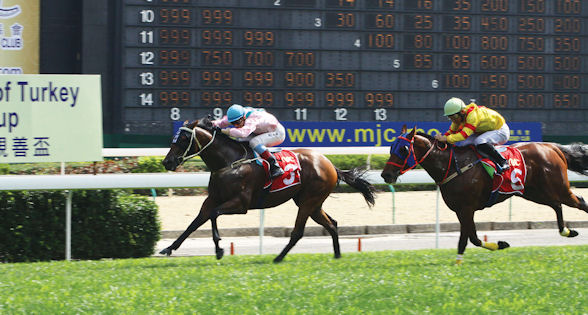
BB: Is there one race you would love to win more than any other?
RC: The Breeder’s Cup in Los Angeles. I was an apprentice there so I spent a lot of time there and my family is still in the United States right now. I competed in this race once in 2011 and finished seventh but it’s a race I would like to win. It’s an international race. It’s not like the Kentucky Derby but this race is very famous. It’s this kind of race I dreamed about when I was a kid in France.
BB: What’s your long-term goal as a jockey?
RC: To win as many races as I can! But I also want to inspire people. I was born in Marseille which is where the football player Zinedine Zidane is from. It is the poorest city in France and jobs are hard to find. A lot of young people go the wrong way due to the lack of opportunities so I hope I can inspire them with my ambition and dedication to make it. I was named “Young Hope of 2016” in March (an award presented annually by the French Government to the best up-and-coming expatriate) and I am dedicated to really be a positive influence, to provide hope for my community.


